
Journal of Web Engineering
Scope & Guideline
Connecting Scholars in the Evolving Digital Landscape
Introduction
Aims and Scopes
- Web Development Technologies:
Research on cutting-edge web development frameworks, languages, and tools, emphasizing performance optimization and usability. - Security in Web Applications:
Exploration of security measures, threat detection, and risk management strategies specific to web technologies and applications. - Data Management and Processing:
Studies on data handling, including big data analytics, data mining, and machine learning applications in web contexts. - Decentralization and Blockchain Technologies:
Investigations into the use of blockchain, smart contracts, and decentralized applications within web engineering. - User Experience and Interaction Design:
Research focusing on enhancing user interaction, accessibility, and overall user experience in web applications. - Emerging Technologies Integration:
Application of AI, IoT, and edge computing in web engineering to address contemporary challenges.
Trending and Emerging
- Web 3.0 and Decentralization:
A significant increase in research related to Web 3.0 technologies, including decentralized applications and blockchain integration, indicates a shift towards more user-controlled web experiences. - Artificial Intelligence and Machine Learning:
The integration of AI and machine learning into web applications is rapidly growing, focusing on enhancing user personalization, automation, and data analytics. - Edge Computing and IoT Integration:
Emerging studies on the convergence of edge computing and IoT within web engineering demonstrate a trend towards optimizing performance and resource management. - Generative AI Applications:
Research focusing on generative AI technologies for various applications, including content creation and data analysis, is becoming increasingly prevalent. - User-Centric Design and Accessibility:
A rising emphasis on user experience design, accessibility, and inclusive web development practices reflects a broader trend towards enhancing user engagement.
Declining or Waning
- Traditional Web Technologies:
There has been a noticeable decrease in research utilizing older web technologies and practices, as newer frameworks and methodologies gain prominence. - Static Web Pages:
The focus on static web development has diminished, with a shift towards dynamic, responsive, and interactive web applications. - Basic SEO Techniques:
Research centered on fundamental SEO practices is declining as more sophisticated, data-driven approaches to SEO emerge. - Web Hosting Solutions:
Studies specifically targeting traditional web hosting solutions are less frequent, as cloud-based and decentralized hosting options become more mainstream. - Classic Data Structures in Web Engineering:
Research on traditional data structures applied to web engineering is waning, replaced by more complex and scalable solutions.
Similar Journals
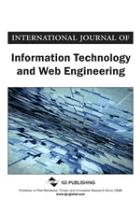
International Journal of Information Technology and Web Engineering
Bridging Theory and Practice in IT and Web EngineeringInternational Journal of Information Technology and Web Engineering, published by IGI GLOBAL, is a pivotal platform for the dissemination of cutting-edge research in the fields of information technology and web engineering. With its ISSN 1554-1045 and E-ISSN 1554-1053, this journal has been effectively contributing to the academic landscape since its inception in 2006, aiming to bridge theoretical frameworks and practical applications in an increasingly digital world. As a recognized Q3 journal in the realm of Computer Science (miscellaneous), it ranks 122 out of 232 in Scopus' classification, positioning it amidst the active discussions and developments within the IT and web engineering communities. The journal not only serves as an invaluable resource for researchers and educators but also encourages students and practitioners to explore innovative methodologies and technologies that shape the future of the digital landscape. Although it is not currently an open-access journal, its contributions are indispensable for advancing knowledge and fostering collaboration within the global research community.

Computers
Empowering Scholars in Computer Networks and BeyondComputers is a leading journal published by MDPI, dedicated to advancing research in the fields of computer networks and communications, as well as human-computer interaction. Since its inception in 2012, it has established itself as a vital resource for scholars and practitioners, achieving an impressive Q2 ranking in Computer Networks and Communications and a Q3 ranking in Human-Computer Interaction as of 2023. The journal is indexed in Scopus, highlighting its relevance with a rank of #135/395 and #72/145 in their respective categories. Published in Switzerland, this open-access journal ensures widespread dissemination of research findings, supporting the global academic community in enhancing technologies relevant to computer science. Access options are available, fostering an environment where knowledge is shared freely. With an emphasis on innovation, redesign, and collaboration between humans and technology, Computers plays a crucial role in shaping the future of digital interactions.
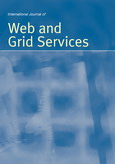
International Journal of Web and Grid Services
Exploring the nexus of technology and collaboration.International Journal of Web and Grid Services, published by INDERSCIENCE ENTERPRISES LTD, is a distinguished platform for innovative research in the realms of Web Services, Grid Computing, and Distributed Systems. Established in 2005, the journal has consistently provided a forum for groundbreaking studies, catering to the evolving needs of academia and industry professionals alike. As of 2023, it is positioned in the Q3 quartile in both Computer Networks and Communications and Software, showcasing a notable impact within the field. Researchers will find this journal instrumental in disseminating knowledge, driving advancements, and fostering collaboration in the rapidly changing technological landscape. Although it currently does not offer open access options, its commitment to high-quality peer-reviewed content ensures that it remains a vital resource for those seeking to stay at the forefront of web and grid services research. With an audience comprising both seasoned scholars and emerging professionals, the International Journal of Web and Grid Services continues to be pivotal in shaping ongoing discourse and innovation.
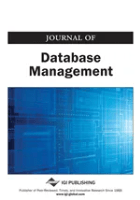
JOURNAL OF DATABASE MANAGEMENT
Bridging Theory and Practice in Database SolutionsJOURNAL OF DATABASE MANAGEMENT, published by IGI GLOBAL, stands at the forefront of research in the fields of Information Systems, Hardware and Architecture, and Software, making it an essential resource for researchers, professionals, and students alike. With an ISSN of 1063-8016 and an E-ISSN of 1533-8010, the journal has established a significant impact in its domain, achieving a Q2 ranking in Information Systems and Q3 in both Hardware and Architecture and Software as of 2023. This reflects its commitment to disseminating high-quality research and developments within the evolving landscape of database management. The journal, which spans a wide array of topics from theoretical frameworks to practical applications, encourages contributions that not only advance academic discourse but also address real-world challenges. Although not open access, its rigorous peer-review process ensures the publication of impactful and credible content. With converged years from 2003 to 2024, it continues to provide a robust platform for scholarly communication, facilitating the exchange of innovative ideas and fostering academic growth in a critical area of computer science.
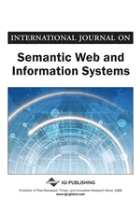
International Journal on Semantic Web and Information Systems
Unveiling Cutting-Edge Insights in Semantic Web Technologies.International Journal on Semantic Web and Information Systems, published by IGI Global, stands as a premier outlet for research in the realm of Semantic Web technologies and information systems. With a commitment to advancing knowledge and innovation, the journal is recognized for its influential contributions, evident from its prestigious Q1 rankings in both Computer Networks and Communications and Information Systems categories as of 2023. Catering to the high demands of the academic community, the journal provides a platform for interdisciplinary dialogue, showcasing cutting-edge research, methodologies, and applications that underpin the evolving landscape of information systems. Researchers and professionals can stay informed about the latest trends, best practices, and transformative technologies shaping the Semantic Web. Although it does not offer open access, the journal maintains rigorous peer-review standards to ensure quality and relevance, making it an essential resource for anyone dedicated to pushing the boundaries of knowledge in this dynamic field.
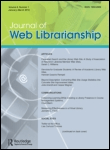
Journal of Web Librarianship
Transforming Information Science for the Digital AgeWelcome to the Journal of Web Librarianship, an esteemed publication dedicated to the evolving landscape of library science and information technology. Published by Routledge Journals, Taylor & Francis Ltd, this journal serves as a vital platform for researchers and professionals to share innovative practices, methodologies, and research findings in the fields of Library and Information Sciences and Computer Science Applications. With an impressive impact factor reflected in its 2023 rankings—Q1 in Library and Information Sciences and Q2 in Computer Science Applications—the journal is well-positioned to influence the discourse and development within these disciplines. Since its inception in 2007, the Journal of Web Librarianship has continually contributed to the academic dialogue, ensuring a comprehensive understanding of the critical role that web technologies play in library services. Though it is not an open-access journal, it remains an invaluable resource for those dedicated to advancing the practice and theory of web librarianship. Join us in exploring the intersections of information and technology as we work towards a more informed society.
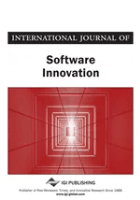
International Journal of Software Innovation
Exploring the Frontiers of Software Technology.The International Journal of Software Innovation, published by IGI Global, serves as a crucial platform for disseminating cutting-edge research in the field of software engineering and innovation. With its ISSN 2166-7160 and E-ISSN 2166-7179, this journal has a broad scope that encompasses multiple areas of computer science, including Artificial Intelligence, Computer Graphics and Computer-Aided Design, Computer Networks and Communications, Software, and Computer Science Applications. Since its inception in 2017 and continuing until 2024, the journal has established itself in Q4 quartiles across various categories, reflecting both emerging trends and foundational principles in software innovation. Although it does not currently follow an Open Access model, its findings are vital for researchers, professionals, and students aiming to understand and contribute to the evolving landscape of software technologies. Located in the United States at 701 E Chocolate Ave, Ste 200, Hershey, PA 17033-1240, this journal not only offers research insight but also encourages collaboration and knowledge sharing among scholars worldwide.

International Journal of Web Services Research
Fostering Collaboration in Web Services InnovationThe International Journal of Web Services Research, published by IGI Global, is a premier forum dedicated to advancing research and innovation in the field of web services. With an ISSN of 1545-7362 and an E-ISSN of 1546-5004, this journal has steadily contributed to the discourse on computer networks, information systems, and software development since its inception in 2004. Based in the United States, the journal publishes high-quality research articles that delve into cutting-edge web service technologies and methodologies, making it an invaluable resource for researchers, professionals, and students alike. Although categorized in the Q4 quartile in 2023 across several classifications, its growing impact and relevance are reflected in its ongoing engagement with contemporary issues in the web services landscape. As an academic platform, it aims to provide a comprehensive understanding of the dynamics of web services and their implications for future technological advancements. Researchers are encouraged to contribute their findings to foster knowledge sharing and collaboration within this vital domain.

Journal of Grid Computing
Connecting Research and Industry in Grid ComputingThe Journal of Grid Computing, published by Springer, stands as a pivotal resource in the dynamic field of computer science, particularly within the realms of Computer Networks and Communications, Hardware and Architecture, Information Systems, and Software. With an impressive Q1 ranking across these categories in 2023, the journal exemplifies excellence and rigor, catering to a diverse readership from researchers to industry professionals. Established in 2003, this esteemed journal is anchored in the Netherlands and releases cutting-edge research that reflects trends and advancements in grid computing technologies. Researchers can gain insights through its vast contributions, while institutions benefit from its prestigious standing within the SCOPUS framework, boasting high percentile ranks in multiple computer science categories. Though not open access, the journal provides unparalleled access options for institutional subscribers, solidifying its importance as a gateway to innovative discoveries in high-performance distributed computing.

INFORMATION SYSTEMS FRONTIERS
Fostering Excellence in Software Engineering and Theoretical InsightsINFORMATION SYSTEMS FRONTIERS, published by Springer, stands at the forefront of interdisciplinary research in the fields of Computer Networks, Information Systems, Software Engineering, and Theoretical Computer Science. Since its inception in 1999, the journal has established itself as a highly regarded source of innovative research, reflected in its impressive Q1 status across multiple categories as of 2023, indicating a prominent position in the academic landscape. With a dedicated focus on disseminating cutting-edge findings and fostering a better understanding of complex information systems, this journal serves as an essential platform for researchers, professionals, and students alike. Authors benefit from a rigorous peer-review process, while readers gain access to pivotal advancements that drive the evolution of technology and information processing. Located in the Netherlands, the journal is poised to continue shaping the discourse in information systems until its converged years of 2024 and beyond.